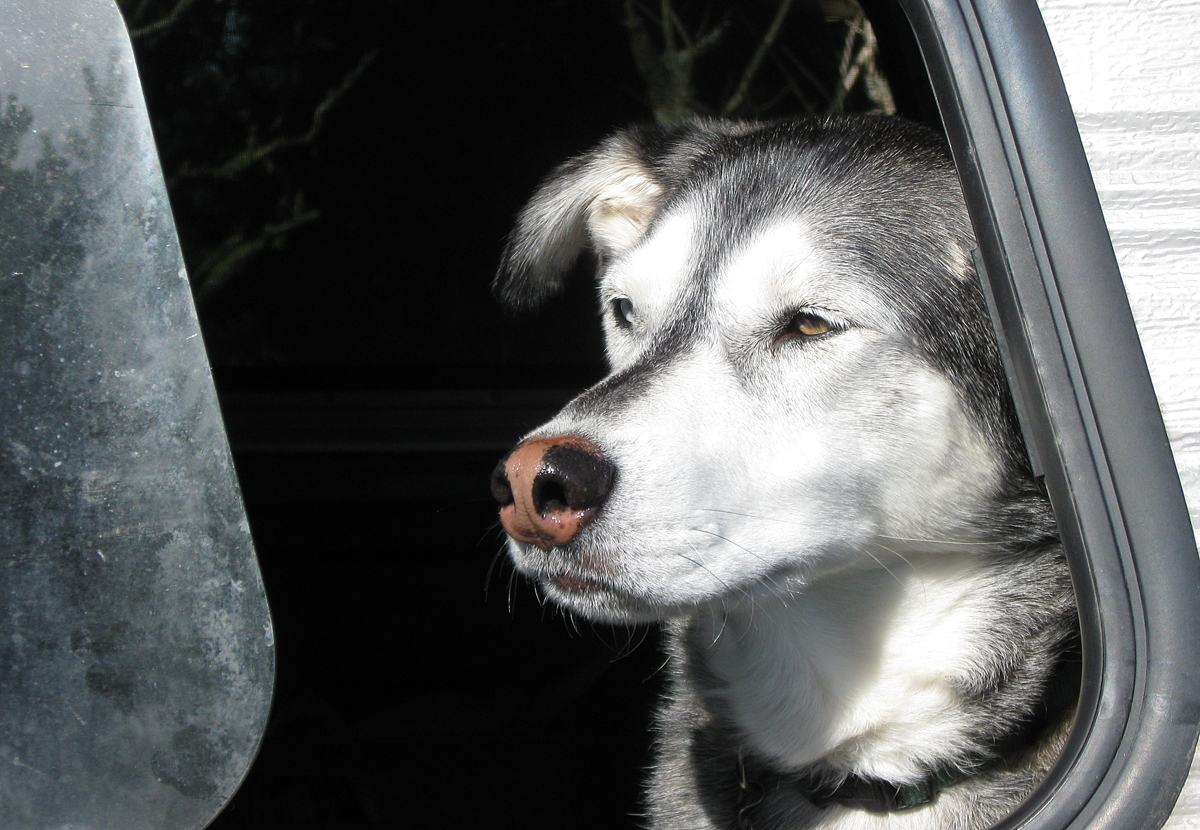Lost and Found 2: Rescuing Dogs, Reality and Metaphor
Long ago, I dated (and eventually married) a remarkable woman who taught me some of my greatest lessons on the meaning of Lost and Found. One lesson in particular has always stood out, but it recently evolved because my circumstances dramatically changed.
The original lesson unfolded in the slower days before cell phones and a stray dog crossed our path as I drove us to a movie in Portland. Rain fell in walls across the streets. It was one of those Oregon rains where drivers pull over to wait out the deluge.
She told me to stop—now!—but I objected because arriving late to a movie then ranked as my worst pet peeve. She raised her voice, commanding me to stop. I did. She said, “There are three kinds of people in the world: 1) people who help lost dogs when it’s not convenient; 2) people who help lost dogs when it’s not convenient and raining; 3) people who never help lost dogs. I only date the second person.”
The rescue mission was on right there. It required considerable effort, but we corralled the dripping dog in the car, and read a phone number on his tag. We drove for what seemed like forever until we found payphone. She made a call and left a message. A few hours later, we reunited the dog with its overjoyed owner and celebrated by cooking a fancy Italian meal and going bowling.
Ever since that rainy afternoon a quarter century ago, I have made it a point to help lost dogs (and cats) who stray across my path. Naturally, every time I render aid, I am on my way to doing something else: work, an appointment, meeting, grocery shopping, social occasion. Aren’t we always doing something else when we encounter a lost dog?
In 20 years of living at the Oregon Coast, I have encountered 15 dogs that were strays and rescued 11 of them (yes, I keep score.) Sometimes, a lost dog simply won’t come to me and I lose it during the chase. I’ll never forget my failed attempt at tackling a greyhound on a beach; it was never seen by its owners again.
My most recent successful mission occurred a year ago in Astoria. I was driving the hills of the south slope when I saw what appeared to be a discarded stuffed animal in a drainage ditch. But then the stuffed animal moved, so I halted the truck and got out. Moments later I was loading an elderly white lapdog into the back of the truck. A day later, with the help of a friend, we reunited the dog with her owner. I no longer recall where I was going or what I was supposed to be doing when the dog appeared. I got there eventually and did what needed to be done.
As I said, the lesson imparted to me long ago about the importance of attempting to rescue lost dogs has taken on new meaning because of my unexpected immersion into the criminal justice system.
The number of lost human beings I’ve encountered wandering through this system has been staggering, and I partially count myself as one of them, although I sense, with the help of new friends, family and ineffable forces, I am on my way to finding myself. Still, there is a long way to go because I have learned the journey of finding yourself is a life-long endeavor.
Back to rescuing lost dogs. A thought occurs to me: could I apply the lesson when I encounter lost people? I can easily think of a dozen reasons why the analogy falls apart in reality and metaphor. But I can also think of ways it does hold up in both categories.

